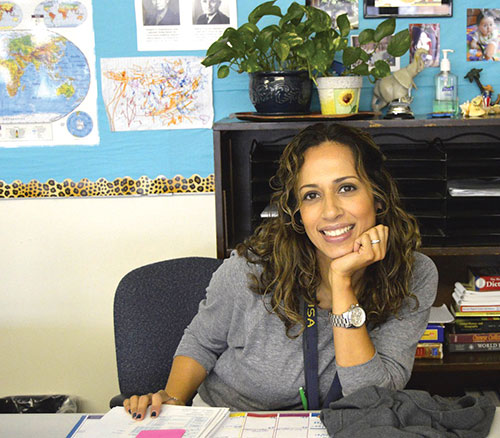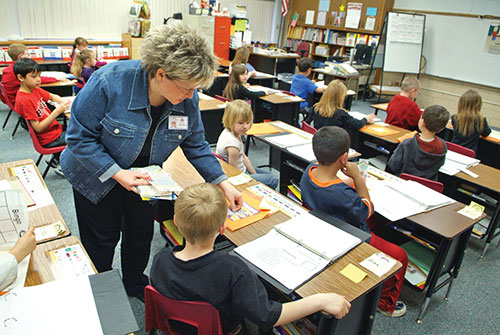Approaching Your Child’s Teacher
 You can help your child get the most out of the school year by developing a positive relationship with his or her teacher early on.
You can help your child get the most out of the school year by developing a positive relationship with his or her teacher early on.
Communicating with your child's teacher is necessary so you can understand your child's strengths and needs, learn how he or she gets along with peers and help solve academic, social or behavioral problems.
Here are some tips for approaching your child's teacher to address four common concerns:
-
I am concerned that my child is falling behind academically. Declining grades, homework difficulties and continued academic concerns all warrant a conversation with your child's teacher. During your conversation, explain the purpose for your visit before stating your concern and use inclusive language (we, us), whenever possible. For example, say “I wanted to meet so we can help Sam reach his full potential." Avoid words that imply there is a problem with current strategies (even if you believe there is one). Saying “We need to come up with a more effective plan," may not be as effective as saying “I'd like us to work together to help my son do his best. How can we make some modifications in the plan?" Also, include specific information or describe a pattern of behavior you have noticed (e.g., “Sam has been in his small reading group for two months. I am concerned because he is still reading at a second-grade level."). By emphasizing data or facts, you can stay focused on solving the problem and avoid the appearance of blaming the teacher or causing him or her to be defensive.
-
My child is frequently teased at school. Seeing your child upset because of what peers have done or said to him or her is difficult. It may be tempting to ask your child's teacher whether the offending peers have been punished or other details about them. Instead, devise a plan with your child to handle teasing. Encourage your child to ignore it and teach him or her when a teacher should be notified. Share this plan with your child's teacher and ask the teacher to praise or acknowledge your child's efforts to follow through with it. This strategy also could be used to address other classroom concerns.
-
I am concerned that my child doesn't get along with his or her teacher. Personality clashes between children and teachers are common. They can provide opportunities to teach your child how to get along with people he or she does not like. If there are specific practices or procedures you believe are harmful or are creating difficulties in the classroom, engage your child's teacher in a problem-solving conversation. Ask the teacher if he or she has noticed these difficulties, and share some of your own experiences talking with your child about a certain topic or managing a specific behavior. Acknowledge the teacher's unique perspective and share with him or her what you've found to be helpful at home.
-
I am concerned that the teacher is not doing enough to address my child's needs. This can be an especially difficult conversation. Review previously agreed-upon strategies to support your child and start a discussion with the teacher about barriers that may be preventing these strategies from being implemented. Acknowledge that employing new strategies takes time. Ask what you can do at home or in the classroom to support school efforts. If the teacher resists your efforts and your child continues to have academic or behavioral difficulties, it may be time seek help from the school psychologist or an outside professional.
 Other tips for approaching your child's teacher:
Other tips for approaching your child's teacher:
-
Attend open house nights and other school events. This sends the message that you are invested in supporting the school and your child's teacher. Showing an interest in the school early on provides opportunities for you and your child's teacher to have conversations that are not always about solving a problem or addressing a concern, which is important for building a positive relationship. It also helps you stay informed about school expectations and procedures.
-
Find out how your child's teacher prefers to be contacted. Ask the teacher if emails, telephone calls or in-person visits during pick-up or drop-off times work best.
-
Find out if you can observe or help in the classroom. Your willingness to be in the classroom tells the teacher you view working on your child's success as a partnership.
-
Don't adopt the viewpoint that no news is good news. If you have concerns about how your child is doing at school, reach out to the teacher; don't wait to be contacted first.
Remember that you and your child's teacher both want the same thing – for your child to be successful in the classroom. Acknowledge the teacher's efforts to work toward this goal and thank him or her for instituting helpful strategies. Even if you do not agree about everything your child's teacher does, keeping your shared goal in mind will help you effectively navigate tricky situations.
Additional Resource
Home-School Conferences - A Guide for Parents by Andrea Canter, Ph.D., NCSP
Kid Tips;School
